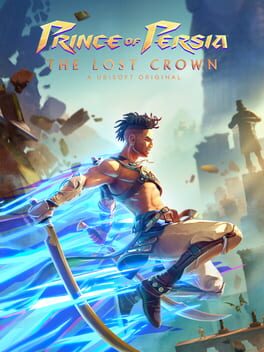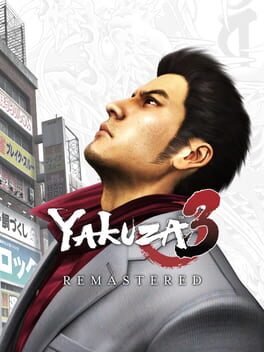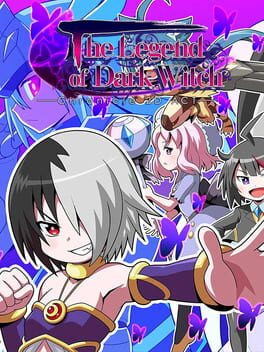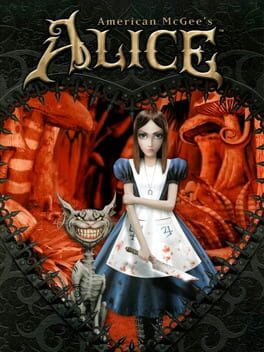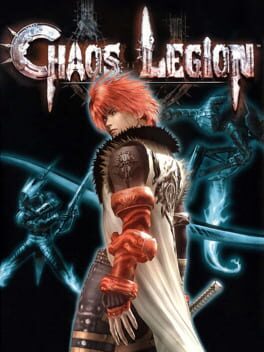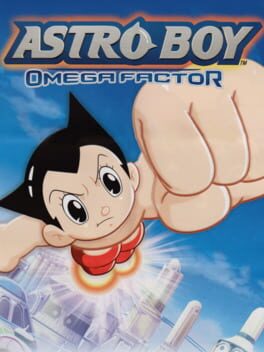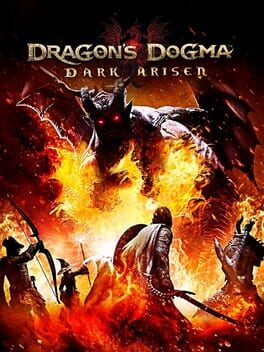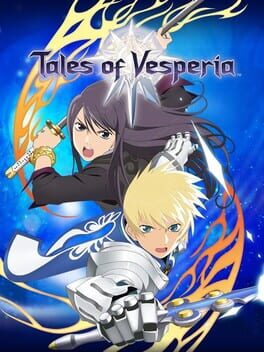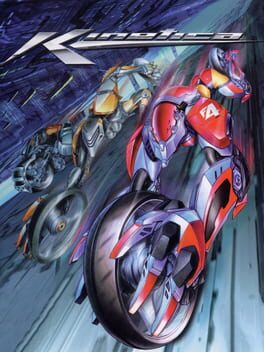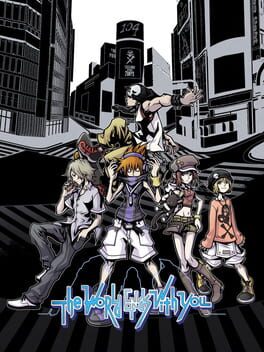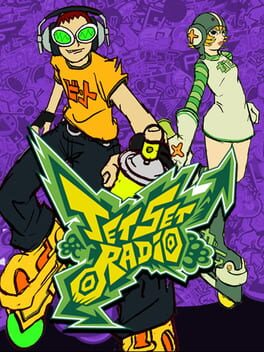blomil
BACKER
707 reviews liked by blomil
Persona 3 Reload
2024
The Rising Tide adds about ten hours of gameplay and complements Echoes of the Fallen, providing some more life to Final Fantasy XVI. It’s far from the highlight of it, and it doesn’t solve any of the base game’s issues, but a beautiful new region with a nice story and some cool abilities to play around with make it a nice offering to anyone who wants to do a bit more. Recommended to those who enjoyed Final Fantasy XVI regardless, especially if you are looking for a little more challenge.
The full review can be read here!
The full review can be read here!
Marvel Snap
2022
Interesting in concept. Takes the system of the hilariously obscure and failed digital card game Artifact and massively simplifies it. Basically, the idea is you have to use your cards as resources to control 3 separate territories, rather than attacking the enemy cards or clearing enemy health. After 6 turns, whoever has 2 of the 3 territories wins. There are no spells either, just a bunch of hero that give you 'power' towards that goal thus dramatically simplifying deck building.
There's a lot of special unique nuances to the game as a result, in contrast to something like hearthstone, to the point that it becomes difficult to properly convey. For example the game has only maximum 12 card decks, and you only play 6 turns, so you end up getting a lot of hand consistency as a result, but ironically you also dont in a way that's difficult to pin down. For one, there is 50 different territory effects many of which radically change the pace of the game, for example one is called "The Raft: Whoever fills this location first draws a 6-Cost card. It costs 0." This benefit is so huge that it becomes imperative to try and race for it after it being revealed, but 1 territories effect is revealed each turn. So naturally if that effect is the rightmost territory, what will happen is that the game becomes almost entirely decided by who risked putting a hero there first without even knowing what the effect would be. It's really hard to describe just how volatile these various effects become to the course of the game but at the same time because you only get 75% of your deck in the short game you cant 100% rely on running 1 late game closer combo, not to mention the territories will probably just mess up your gameplan anyway.
The other really strange inclusion is the 'bluffing' component. Basically you can at any point double the stakes of play by 'snapping' meaning that if you win you get double the amount of ladder elo to further towards those extrinsic rewards, rewards also double on the last turn to. You can basically use this as an option to in theory scare your opponent into leaving early by leveraging a snap to 'raise'. Or you can cut your own losses and leave. This creates a neat little poker game metagame that has an air of unusual suave charm to the experience, considering the vulgarity surrounding aesthetics at play here.
What you're left with as a result of these mechanics is a strange type of deduction game where you have to try and figure out how strong you think peoples remaining hand is, whether they are running 'x' late game card and whether or not you have to tools in your next few turns to control the territories. This part of the game is very amusing and a great foundation for the play experience.
The issue though is that the ladder fundamentally doesnt matter at all, due to the fact the extrinsic rewards for doing well are so trivial as to be irrelevant. Half of them give no actual reward at all in terms of currency or cards instead just giving you barely a daily play rate of gems, the other half give prestige bonuses like just new avatars or titles which could not possibly matter less because there's no in game social element whatsoever. So while there's an intrinsic reward for ranking up there is no meaningful motivator for taking the 'stakes' of play that seriously. To compare think of how it feels to play no-stakes poker, realizing that raising or even all inning does not matter at all. Folding naturally only becomes important when you specifically want to stop playing or if only you specifically want to win, but the 'non seriousness' of the play environment has a natural effect of completely rattling the 'good' players of poker because without actual risk their opponents play decisions become that much more unpredictable completely undermining the point of the game. This is why I argued so incredibly fiercely to the idea that gambling does in itself have a profoundly dynamic and entertaining mode of play in my Vampire Survivors write up, and I stand by that 100% here.
The issue is obviously not that I want them to financialize the game even more than it is, if anything this complaint actually comes out of the opposite. This complaint is bundled in with the general fact that this game is really making you grind for those cards. But it's doing it in a really odd way. Unlike making you rip open card packs and experiencing the 'novelty' of having a card others might not, instead you have to rank up your cards through a 'pool' system. With the cards you unlock being in that pool. This has a lot of theoretical consistency as literally almost nobody in the same card pool level as you is going to have cards you wouldn't, thus allowing you to assess what your opponent is going to play more accurately, and not get rolled by the opponent running 1 broken 'legendary' card you dont have. The issue is that the ranking system is not pool locked at all, eventually you will get to a point where you're fighting against players are running cards you've literally never seen before. At these ranks you're no longer fighting players that have just 1 or 2 new cards but rather, players for which every card is new. The issue is that accessing the options of those pools (say pool 3 or 4) is only doable by months of daily quests really, or by fronting a lot of cash to get there more quickly (and even this would still take probably a week just to get there since even the shops have a cooldown). Combine this with labyrinthine upgrade systems, season passes, shops options, etc. and you seem to have a system that heavily incentivizes envy over success. The implicit game function seems to be that how well you can play doesn't matter at all, instead, doesn't that enemies Rhino seem so cool? Too bad, you have to get to level 300 first. Grind chimpmonkey grind.
You have a game almost entirely dedicated to paywalls and timegates. A game that has throttled the dynamicism of card games into the chemical compounds of envy. They know what they are doing, they know that if they made the ladder matter at all it would make the player too satisfied, and you're never supposed to be too satisfied. It's the same reason why Diablo Immortal gives you nobody to play with after you spent 10 grand on it, you thought that was an accident? No child, you buy because you are unsatisfied, and you are unsatisfied so you buy. The heart wants, and it wants, and it eats itself alive with the almighty dollar.
Download your parasite little one.
There's a lot of special unique nuances to the game as a result, in contrast to something like hearthstone, to the point that it becomes difficult to properly convey. For example the game has only maximum 12 card decks, and you only play 6 turns, so you end up getting a lot of hand consistency as a result, but ironically you also dont in a way that's difficult to pin down. For one, there is 50 different territory effects many of which radically change the pace of the game, for example one is called "The Raft: Whoever fills this location first draws a 6-Cost card. It costs 0." This benefit is so huge that it becomes imperative to try and race for it after it being revealed, but 1 territories effect is revealed each turn. So naturally if that effect is the rightmost territory, what will happen is that the game becomes almost entirely decided by who risked putting a hero there first without even knowing what the effect would be. It's really hard to describe just how volatile these various effects become to the course of the game but at the same time because you only get 75% of your deck in the short game you cant 100% rely on running 1 late game closer combo, not to mention the territories will probably just mess up your gameplan anyway.
The other really strange inclusion is the 'bluffing' component. Basically you can at any point double the stakes of play by 'snapping' meaning that if you win you get double the amount of ladder elo to further towards those extrinsic rewards, rewards also double on the last turn to. You can basically use this as an option to in theory scare your opponent into leaving early by leveraging a snap to 'raise'. Or you can cut your own losses and leave. This creates a neat little poker game metagame that has an air of unusual suave charm to the experience, considering the vulgarity surrounding aesthetics at play here.
What you're left with as a result of these mechanics is a strange type of deduction game where you have to try and figure out how strong you think peoples remaining hand is, whether they are running 'x' late game card and whether or not you have to tools in your next few turns to control the territories. This part of the game is very amusing and a great foundation for the play experience.
The issue though is that the ladder fundamentally doesnt matter at all, due to the fact the extrinsic rewards for doing well are so trivial as to be irrelevant. Half of them give no actual reward at all in terms of currency or cards instead just giving you barely a daily play rate of gems, the other half give prestige bonuses like just new avatars or titles which could not possibly matter less because there's no in game social element whatsoever. So while there's an intrinsic reward for ranking up there is no meaningful motivator for taking the 'stakes' of play that seriously. To compare think of how it feels to play no-stakes poker, realizing that raising or even all inning does not matter at all. Folding naturally only becomes important when you specifically want to stop playing or if only you specifically want to win, but the 'non seriousness' of the play environment has a natural effect of completely rattling the 'good' players of poker because without actual risk their opponents play decisions become that much more unpredictable completely undermining the point of the game. This is why I argued so incredibly fiercely to the idea that gambling does in itself have a profoundly dynamic and entertaining mode of play in my Vampire Survivors write up, and I stand by that 100% here.
The issue is obviously not that I want them to financialize the game even more than it is, if anything this complaint actually comes out of the opposite. This complaint is bundled in with the general fact that this game is really making you grind for those cards. But it's doing it in a really odd way. Unlike making you rip open card packs and experiencing the 'novelty' of having a card others might not, instead you have to rank up your cards through a 'pool' system. With the cards you unlock being in that pool. This has a lot of theoretical consistency as literally almost nobody in the same card pool level as you is going to have cards you wouldn't, thus allowing you to assess what your opponent is going to play more accurately, and not get rolled by the opponent running 1 broken 'legendary' card you dont have. The issue is that the ranking system is not pool locked at all, eventually you will get to a point where you're fighting against players are running cards you've literally never seen before. At these ranks you're no longer fighting players that have just 1 or 2 new cards but rather, players for which every card is new. The issue is that accessing the options of those pools (say pool 3 or 4) is only doable by months of daily quests really, or by fronting a lot of cash to get there more quickly (and even this would still take probably a week just to get there since even the shops have a cooldown). Combine this with labyrinthine upgrade systems, season passes, shops options, etc. and you seem to have a system that heavily incentivizes envy over success. The implicit game function seems to be that how well you can play doesn't matter at all, instead, doesn't that enemies Rhino seem so cool? Too bad, you have to get to level 300 first. Grind chimpmonkey grind.
You have a game almost entirely dedicated to paywalls and timegates. A game that has throttled the dynamicism of card games into the chemical compounds of envy. They know what they are doing, they know that if they made the ladder matter at all it would make the player too satisfied, and you're never supposed to be too satisfied. It's the same reason why Diablo Immortal gives you nobody to play with after you spent 10 grand on it, you thought that was an accident? No child, you buy because you are unsatisfied, and you are unsatisfied so you buy. The heart wants, and it wants, and it eats itself alive with the almighty dollar.
Download your parasite little one.
Balatro
2024
2nd day of playing: wanted to just play a tiny bit before bed, around 11:30pm...now its 3am...
honestly that this deckbuilder isn't fantasy/sci-fi based but rather plays on that "forbidden fruit" coolness of casinos, poker and slot machines is an immense alleinstehenungsmerkmal (i'm german and that word is way to perfect in this instance not to use it) and the reason why my extremely greedy -ss just said: f-ck it, i buy into the hype...and i don't regret it.
balatro sort of encaptures, atleast for me, slot machines and, in the players of balatro themselves, the mystical gaze of people playing with these machines in, for example, smoked in kneipen or even some kepab places of berlin (or any other place in the world). the sort of elegant but never tiring music, the brightness and shaking of the screen, the satisfying coin and card pop/draw sounds, the simple however extremely flashy art direction.
what i'm proposing here is sort of dark but:
knowing that games help with empathy, maybe this game isn't just a jolly good time killer. maybe it's a "risk-free" view into the mind of gambling addicts. those lost souls, staring into the grossly incadescent abyss of these obelisk-like machines, ad infinitum...
honestly that this deckbuilder isn't fantasy/sci-fi based but rather plays on that "forbidden fruit" coolness of casinos, poker and slot machines is an immense alleinstehenungsmerkmal (i'm german and that word is way to perfect in this instance not to use it) and the reason why my extremely greedy -ss just said: f-ck it, i buy into the hype...and i don't regret it.
balatro sort of encaptures, atleast for me, slot machines and, in the players of balatro themselves, the mystical gaze of people playing with these machines in, for example, smoked in kneipen or even some kepab places of berlin (or any other place in the world). the sort of elegant but never tiring music, the brightness and shaking of the screen, the satisfying coin and card pop/draw sounds, the simple however extremely flashy art direction.
what i'm proposing here is sort of dark but:
knowing that games help with empathy, maybe this game isn't just a jolly good time killer. maybe it's a "risk-free" view into the mind of gambling addicts. those lost souls, staring into the grossly incadescent abyss of these obelisk-like machines, ad infinitum...
Final Fantasy VII
1997
Yakuza 3 Remastered
2018
Yakuza 3 Remastered
2018
The truly hot Yakuza take finally manifests. THIS was the follow-up I was looking for after Yakuza Kiwami, and I'm so thankful for all of the great story choices the Ryu Ga Gotoku studio made here. Yakuza 3 may have very well surpassed Yakuza 0 in my personal ranking of the series.
The combat is clearly stiffer than the more contemporary entries, but it's combat that still makes a lot of sense. Yes, enemies block a ton but if you dig into the combat just a bit you'll find more than enough tools to deal with everything the game's narrative throws at you. I can't speak for the extra ultimate boss stuff, I'm not a platinum hound, but I found the combat in Yakuza 3 to be more than serviceable.
The real star is the story, and the wealth of great substory content in the game. The orphanage was a brilliant choice and anyone that can't hang with it is no friend of mine. It's a choice that makes complete and total sense for Kiryu and involves Haruka in a meaningful way, which makes Yakuza 3 just feel way more vital as an entry than 2.
Yakuza 3 isn't perfect by any means but it's got an astonishing amount of heart and it does right by all the characters you've grown to love up to this point. It's probably an unpopular opinion but this feels like a high point to me for the series, a game that sees the series truly come into its own as a long-running narrative.
The combat is clearly stiffer than the more contemporary entries, but it's combat that still makes a lot of sense. Yes, enemies block a ton but if you dig into the combat just a bit you'll find more than enough tools to deal with everything the game's narrative throws at you. I can't speak for the extra ultimate boss stuff, I'm not a platinum hound, but I found the combat in Yakuza 3 to be more than serviceable.
The real star is the story, and the wealth of great substory content in the game. The orphanage was a brilliant choice and anyone that can't hang with it is no friend of mine. It's a choice that makes complete and total sense for Kiryu and involves Haruka in a meaningful way, which makes Yakuza 3 just feel way more vital as an entry than 2.
Yakuza 3 isn't perfect by any means but it's got an astonishing amount of heart and it does right by all the characters you've grown to love up to this point. It's probably an unpopular opinion but this feels like a high point to me for the series, a game that sees the series truly come into its own as a long-running narrative.





